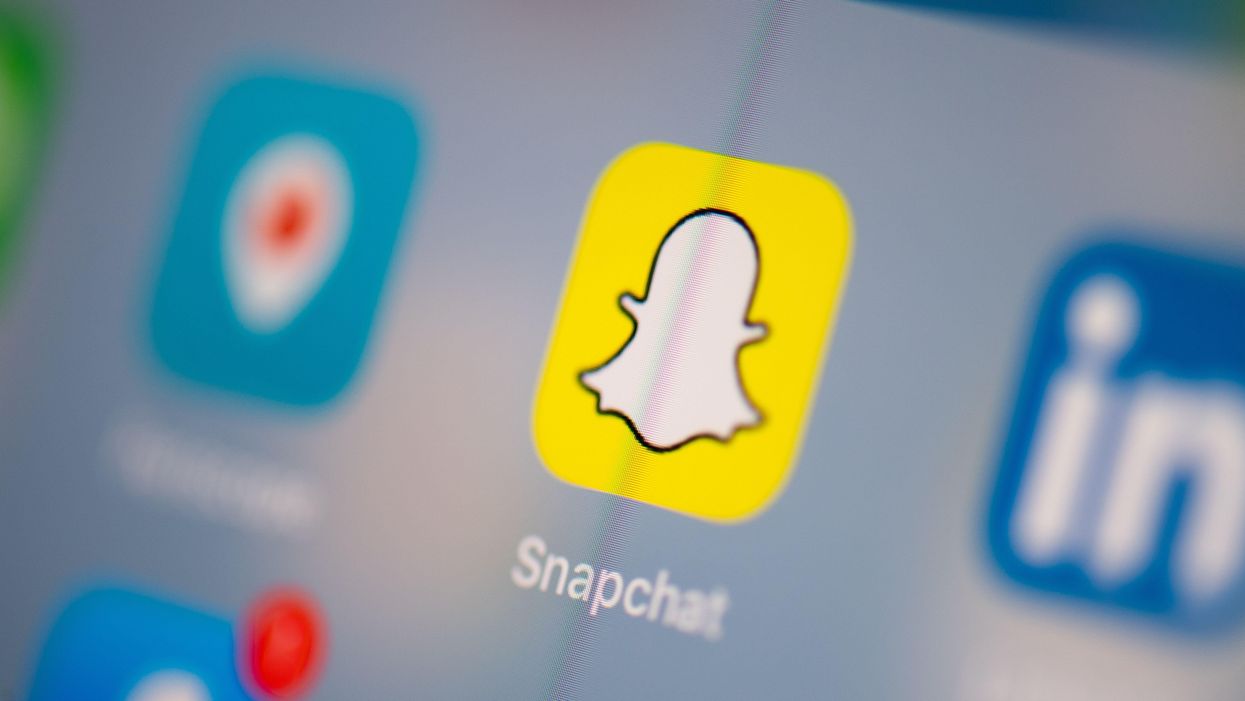
Photo by MARTIN BUREAU/AFP via Getty Images

It could happen
A Pennsylvania school district is requesting the Supreme Court weigh in on a case after a freshman cheerleader and her parents sued the district after it disciplined the teen for a profane message she shared on social media.
According to a Monday report from the New York Times, titled "A Cheerleader's Vulgar Message Prompts a First Amendment Showdown," the Mahanoy Area School District has asked the Supreme Court to rule on whether students can be disciplined for remarks they make on social media.
In 2017, the unnamed student had just discovered that she didn't make the varsity cheerleading squad when she sent the offending message.
She took to Snapchat, where she messaged about 250 friends with a message featuring herself and a fellow student with their middle fingers up. The unnamed student captioned the photo "[u]sing a curse word four times," and expressed her unhappiness with "school," "softball," "cheer," and "everything."
"Though Snapchat messages are ephemeral by design, another student took a screenshot of this one and showed it to her mother, a coach," the Times reported. "The school suspended the student from cheerleading for a year, saying the punishment was needed to 'avoid chaos' and maintain a 'teamlike environment.'"
Following the suspension, the teen and her family sued the district and was victorious in the United States Court of Appeals for the 3rd Circuit in Philadelphia. At the time, the court ruled that the First Amendment "did not allow public schools to punish students for speech outside school grounds."
The student and her family, who are represented by attorneys from the American Civil Liberties Union, told the Supreme Court that the First Amendment protected the teen's "colorful expression of frustration, made in an ephemeral Snapchat on her personal social media, on a weekend, off campus, containing no threat or harassment or mention of her school, and that did not cause or threaten any disruption of her school."
According to the Times, "the school district said administrators around the nation needed a definitive ruling from the Supreme Court" in order to ascertain their ability to discipline students for "what they say away from school."
"The question presented recurs constantly and has become even more urgent as Covid-19 has forced schools to operate online," a brief for the district's appeal read, according to the outlet. "Only this court can resolve this threshold First Amendment question bedeviling the nation's nearly 100,000 public schools."
"Whether a disruptive or harmful tweet is sent from the school cafeteria or after the student has crossed the street on her walk home, it has the same impact," the brief added. "The Third Circuit's formalistic rule renders school powerless whenever a hateful message is launched from off campus."
"The Supreme Court next month will consider whether to hear the case of Mahanoy Area School District v. B.L., involving a student's freedom of speech while off school grounds," the Times said.
Justin Driver, author and law professor at Yale University, told the Times that he partially agrees with the district.
"It is difficult to exaggerate the stakes of this constitutional question," he said, pointing out that schools have no business "telling students what they could say when they were not in school."
He continued, "In the modern era, a tremendous percentage of minors' speech occurs off campus but online. Judicial decisions that permit schools to regulate off-campus speech that criticizes public schools are antithetical to the First Amendment. Such decisions empower schools to reach into any student's home and declare critical statements verboten, something that should deeply alarm all Americans."